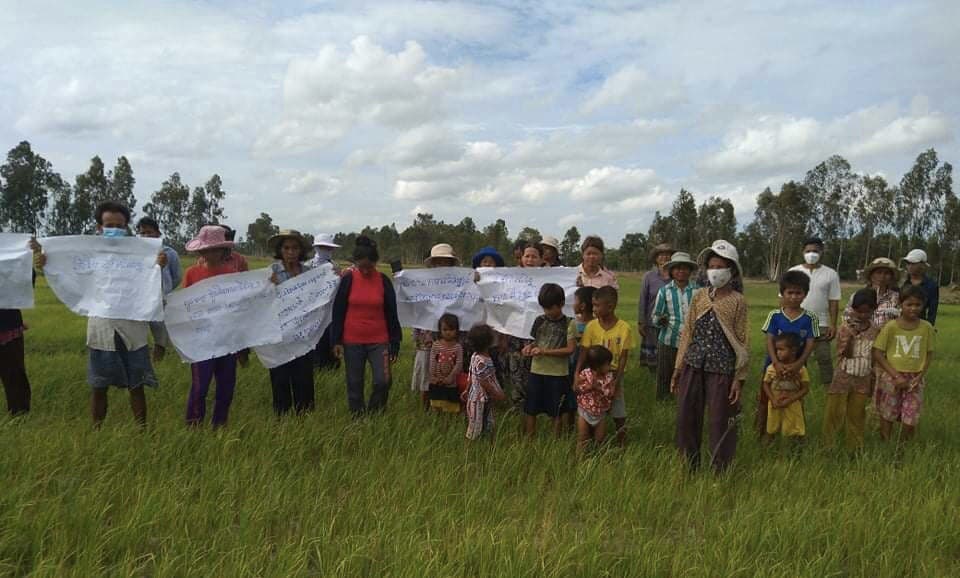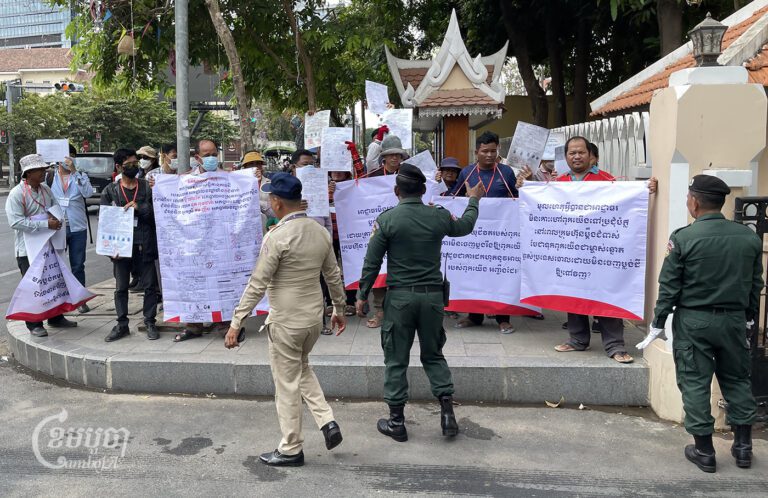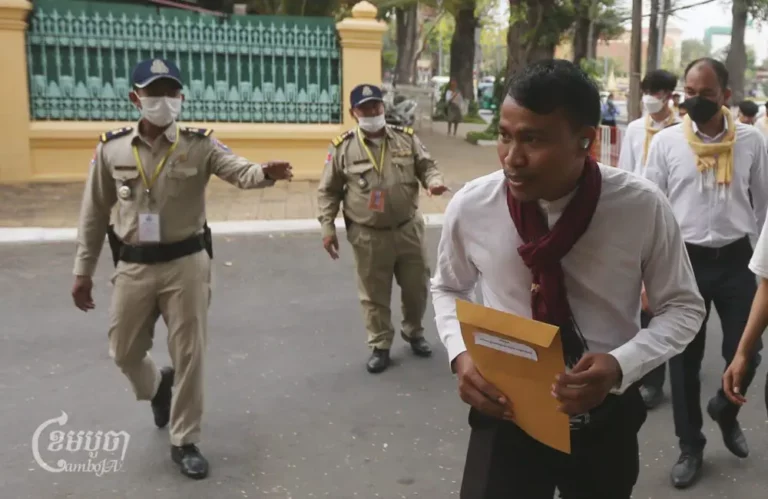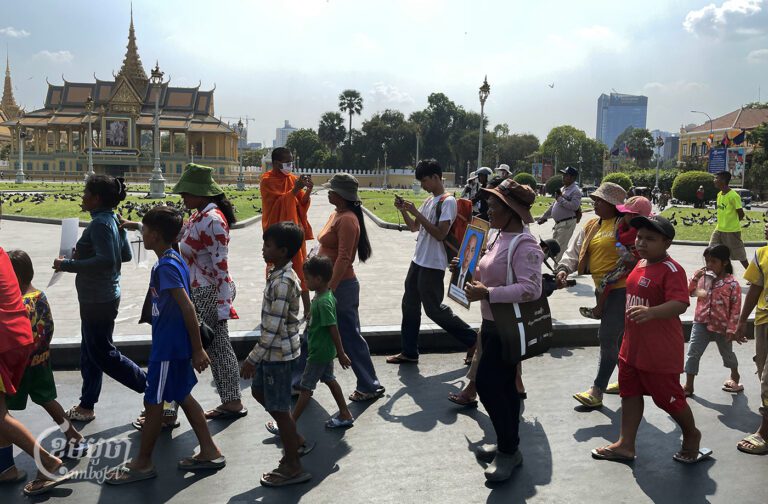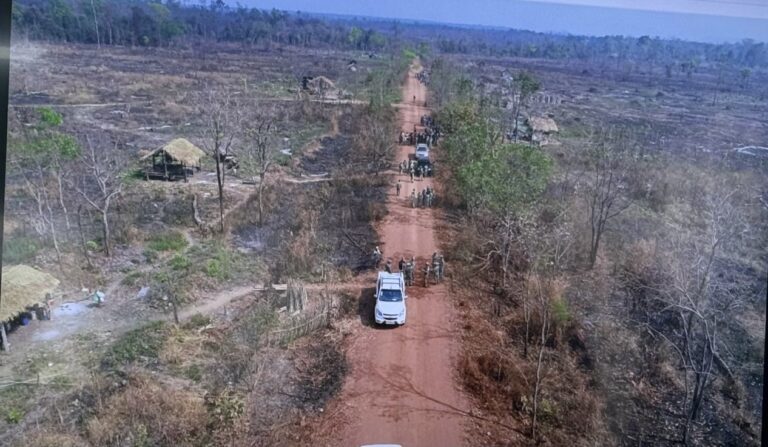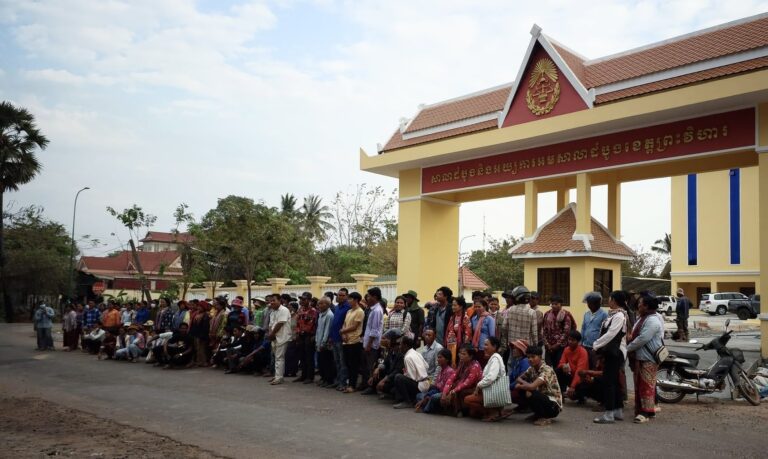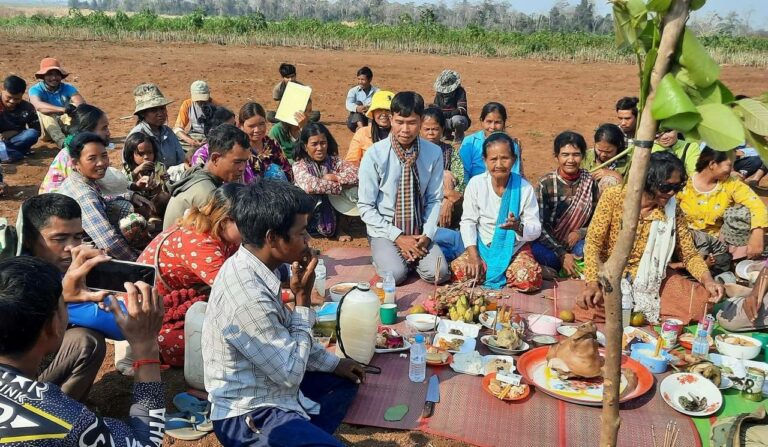Sixty families connected to protests of a Svay Rieng canal restoration project have been placed in 14-day quarantine after two villagers tested positive for COVID-19, leading some locals to allege officials are using health measures to force a resolution of the land dispute.
On August 2, villagers protested against provincial authorities who locals say are forcing them to accept a low price for land compensation to make way for the canal restoration. Last week, two representatives of a farming community were already ordered to pay a total of $1,000 in fines by district officials for gathering protests that violated COVID-19 health measures.
Now, authorities say two protestors have tested positive for COVID-19 and are ordering 14-day quarantines for all people who joined the protest. That includes 40 in Chek village and 20 in Thnong village, both in Svay Chrum district where about 120 families with claims to more than 99 hectares of land across two communes have been affected by the proposed restoration of the Kampong Chrey canal.
Yos Sophorn, a representative from Chek village who, along with community leader In Soth, was ordered last week to pay a fine of $500 for allegedly violating health measures, said authorities may use the COVID-19 situation as an excuse to stop people from protesting.
“The authorities continue to force people to thumbprint to accept compensation, and those who agree to accept, they are not required to be placed in quarantine,” she said.
Another villager, On Samai, said after the authorities found two people positive with COVID-19, they acted immediately to close homes for quarantine. Samai says authorities may use this as an excuse to force them to accept the compensation.
“I did not buy anything and now I have no food, the authorities have not given me anything, In the long run, I’m afraid this is the exchange of the authorities to ask us for a thumbprint to accept the compensation,” she said. “Sometimes I am forced to sneak out in fear to find rice and other food from my neighbors.”
Svay Rieng deputy Governor Ros Pharith denied accusations the health measures are being used to force the issue of the canal, saying that authorities are only implementing the law.
“The authorities are following the rules and regulations of the Ministry of Health’s measure,” he said. “This is not a threat, it is not about the limit of rights and freedom, but is about COVID-19.”
Pharith said local authorities are also checking in with families to provide the most vulnerable with assistance, saying those that did not receive assistance had been deemed to have their own means of support.
However, Theng Savoeun, president of the Coalition of Cambodian Farmer Community, said his association has prepared food to distribute to quarantined families but has not been allowed to do so by officials.
“We have asked the authorities to facilitate the provision of assistance to them during the quarantine, but they say those people were in contact with people who are positive with COVID-19,” he said. “Some people have suffered from food shortages as well as lack of rice, so we do not want a delay.”
Vann Sophat, business coordinator and human rights officer at Cambodian Center for Human Rights, told CamboJA there are many cases where people have gathered to protest over land and have been restricted by regulations of the Ministry of Health.
“The Health Ministry’s measure to contain COVID-19 has now become a threat, because people affected by land disputes are afraid of protesting or gathering or else they will be accused by the authorities,” he said.
Pol Seth, a farmer in Thnong village, told CamboJA that this is the high season for farming and that it would be difficult for locals to lose two weeks of labor due to quarantine.
“They will not have money to pay back loans, the crop income will need to be watered, fertilized. They will not be able to go out, and they will not be able to grind rice to buy food,” she said.


